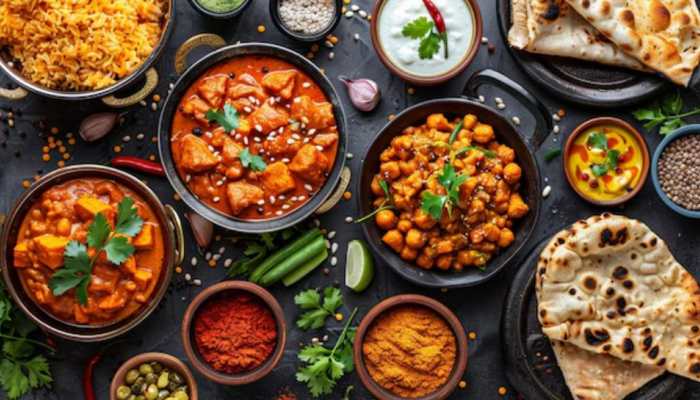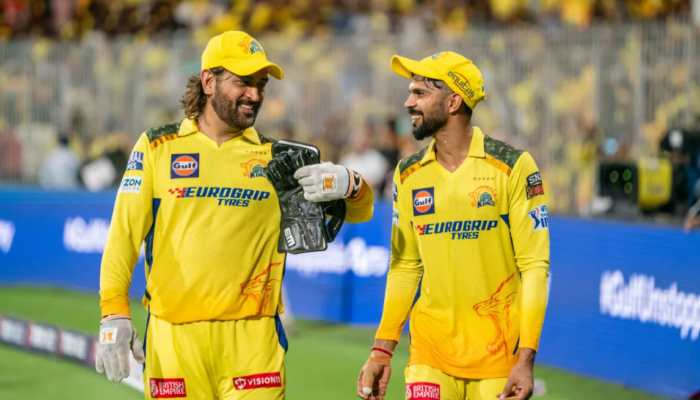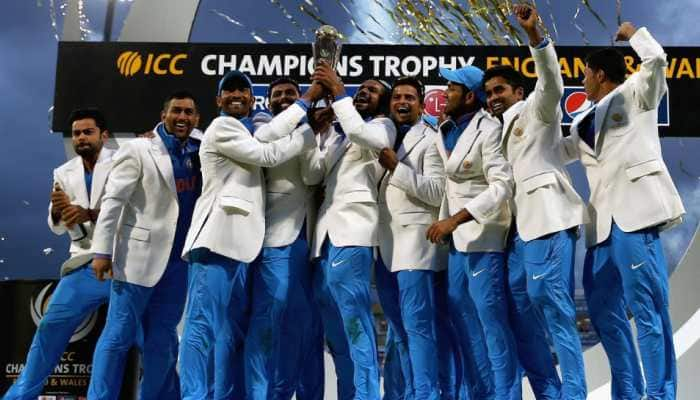Karva Chauth 2024: Why You Should Avoid Heavy Food After Fasting All Day?
Enjoy your Karva Chauth with care and consideration for your health!
Trending Photos
) Image credit: Freepik
Image credit: Freepik Karva Chauth is a widely celebrated festival in India, particularly in North India, where married women observe a day-long fast for the well-being and longevity of their husbands. This year, Karva Chauth falls on October 20, 2024. During this festival, women refrain from eating or drinking from sunrise until moonrise. As the day ends with the sighting of the moon, the fast is broken with prayers and food. However, one crucial aspect to consider is what to eat once the fast is over. Though the temptation to indulge in a heavy meal may be strong after fasting all day, doing so can be harmful to your health.
Why Heavy Food After Fasting Should Be Avoided?
After fasting for an extended period, especially without water, the body undergoes significant changes. Here’s why consuming heavy, rich food immediately after breaking your fast can negatively affect your health:
1. Digestive System Slows Down
When you fast, your digestive system slows down. It goes into a rest mode, as the stomach remains empty for hours. Breaking the fast with oily, spicy, or heavy foods can overwhelm your digestive system, making it difficult to process and absorb the nutrients efficiently. This can lead to indigestion, bloating, and discomfort.
2. Risk of Acidity and Heartburn
Spicy and oily foods can trigger acidity and heartburn, particularly after a fast. The stomach's lining becomes more sensitive during the fast, so introducing heavy or spicy meals can irritate the stomach, leading to a burning sensation or gastric problems.
3. Sudden Blood Sugar Spikes
After hours of fasting, the body's glucose levels are low. Consuming sugary or carbohydrate-rich foods immediately can cause a sudden spike in blood sugar levels, which can make you feel tired, sluggish, and unwell. Such fluctuations can also impact those with diabetes or prediabetes, increasing health risks.
4. Overeating Can Lead to Fatigue
Eating a heavy meal after fasting can result in overeating, which in turn may lead to fatigue. After a large meal, the body directs a lot of energy to the digestive process, making you feel lethargic rather than energized. This contradicts the purpose of breaking the fast, which should be to rejuvenate and restore your energy.
5. Dehydration and Electrolyte Imbalance
Fasting during Karva Chauth also involves not drinking water throughout the day. When breaking the fast, it is crucial to rehydrate gradually. Consuming heavy or salty foods can worsen dehydration, leaving you feeling parched and tired. Additionally, dehydration can cause an electrolyte imbalance, which further affects your energy levels and overall well-being.
What to Eat Instead After Fasting
Here are some healthier options to consider when breaking your Karva Chauth fast:
1. Water and Fresh Juices: Begin by sipping water to rehydrate your body. You can also have fresh fruit juices or coconut water to restore lost electrolytes and provide instant hydration.
2. Light Fruits: Choose water-rich fruits like watermelon, papaya, or apple. These are easy to digest and provide natural sugars for energy without spiking blood sugar levels dramatically.
3. Soup or Broth: A light, vegetable-based soup or broth is a perfect choice for easing your digestive system back into action. It is warm, soothing, and provides essential nutrients.
4. Curd or Yogurt: A bowl of curd or yogurt is another gentle and cooling option. It aids in digestion and prevents acidity.
5. Small Portions of Khichdi or Upma: After rehydrating and eating light foods, if you still feel hungry, go for a small portion of soft, light meals like khichdi (rice and lentil porridge) or upma. These dishes are mild and easy on the stomach.
6. Avoid Too Much Sugar or Fried Foods: While traditional sweets are often consumed after Karva Chauth, try to keep portions small and avoid too many fried foods like pakoras or puris, as they can be difficult to digest after fasting.
Karva Chauth is a day of devotion and tradition, but taking care of your health should also be a priority. Breaking your fast with light, easily digestible foods will not only help your body recover from the fast but will also ensure you stay healthy and energetic. Avoiding heavy, spicy, and oily foods is essential for maintaining a balanced digestive system and overall well-being after a day of fasting.
(This article is intended for your general information only. Zee News does not vouch for its accuracy or reliability.)
Stay informed on all the latest news, real-time breaking news updates, and follow all the important headlines in india news and world News on Zee News.
Live Tv







)
)
)
)
)
)
)
)
)
)
